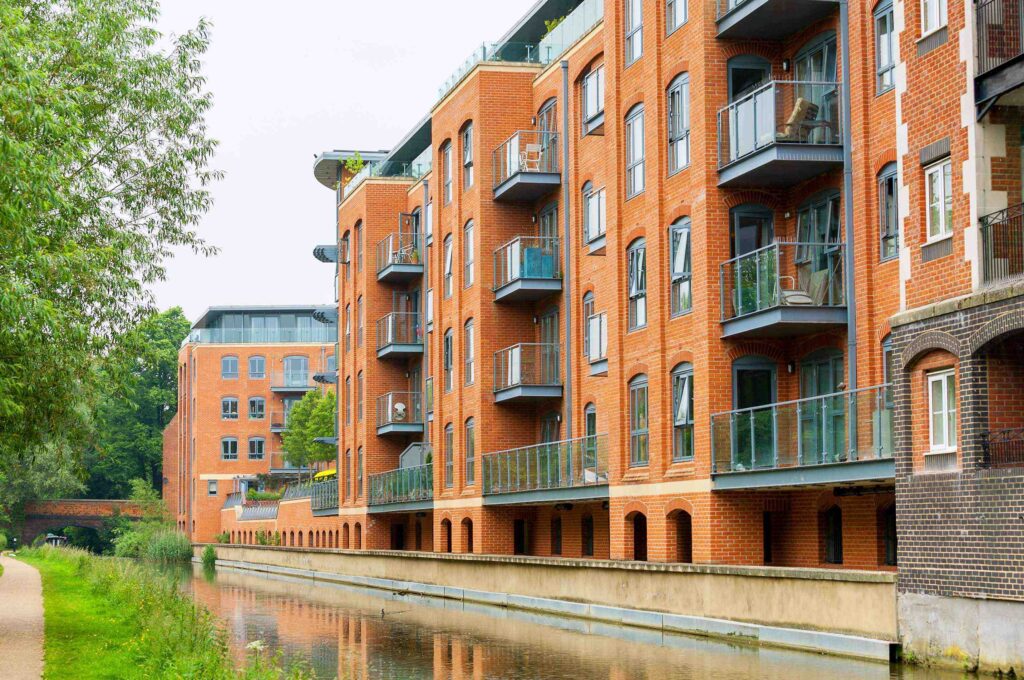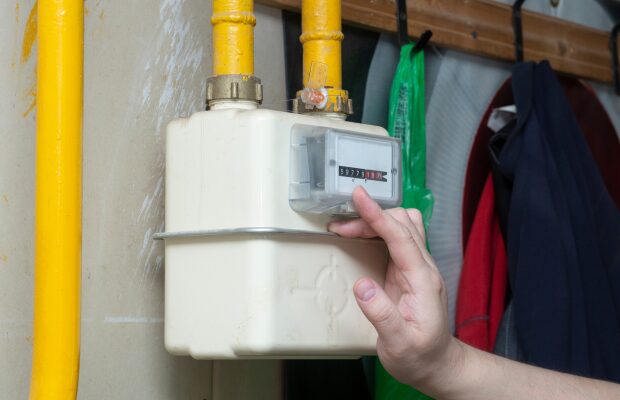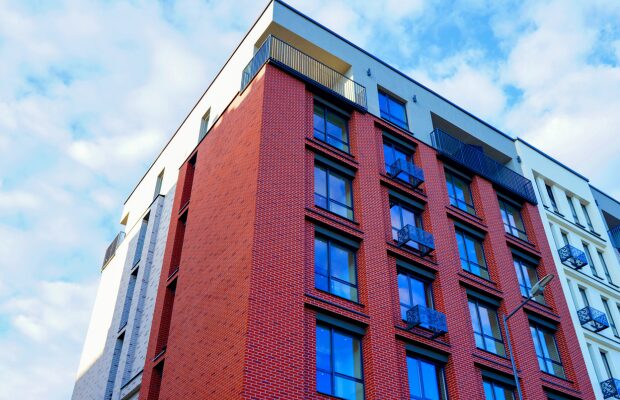Everything you need to know about extending a lease
Buying a leasehold property means, at some stage, you may be faced with needing to extend your lease.
The longer you own a leasehold property, the shorter the lease becomes – and this can affect both your property’s value and your ability to sell it in the future.
Extending a lease can be a complex process, but this guide outlines everything you need to know…
The difference between leasehold and freehold
When you buy a freehold property, such as a house, you own the property and the land around it and there is no limit on the amount of time you can live there.
When you buy a leasehold property, however, you buy the right
to live in the property for the time remaining on the lease – and not the property or land around it, which is owned by the freeholder.
Most leasehold properties are flats, where the overall building and land is owned by a freeholder.
Can you extend a lease?
If you’ve owned your leasehold property for at least two years and there were at least 21 years remaining on the lease when you purchased it, you can extend it by statutory law.
Rules on leasehold flats
Under statutory law, you can extend the lease on a flat by 90 years if you’ve owned it for more than two years and there were at least 21 years remaining on the lease when you bought it.
Rules on leasehold houses
Although leasehold houses are rarer than flats, you can extend the lease on one for 50 years if you’ve owned it for more than two years and there were at least 21 years left on the lease at the time of purchase.
When should you extend a lease?
If the lease on your property is 80 years or less, you should look to extend it.
The shorter the lease on a property, the lower its market value, the harder it will be to sell and the more expensive it will be to extend the lease.
It can also be difficult to secure a mortgage or remortgage on a property with a short lease.
Once a lease falls below 80 years, the freeholder is also entitled to what’s called ‘marriage value’, meaning 50% of any increase in property value through a lease extension would be payable to them.
Can a landlord refuse to extend a lease?
Your landlord, or freeholder, can’t refuse to extend the lease on your property if you’ve owned it for at least two years.
You don’t have to have lived in the property for that time, but you must have been the registered owner with the Land Registry.
Under statutory lease extensions, the terms of the lease must also remain the same.
How much does it cost to extend a lease?
The cost of a lease extension will depend on:
The value of the property
The amount of time remaining on the current lease
The ground rent charge for the property
The value of any improvements carried out by the leaseholder
Costs vary hugely and can range from a few thousand pounds to around £100,000 depending on the above.
You’ll also need to factor in a range of other costs, including:
1. Legal and Land Registry fees
Lease extensions can be legally complicated, so you will need a solicitor to carry out work for you.
The new lease will also need to be registered at the Land Registry and there is a fee payable for this.
2. Valuation fees
When extending a lease, you’ll need to have a new valuation carried out on your property and this must be done by a qualified surveyor.
3. Stamp duty
In most cases, stamp duty is not payable for lease extensions.
However, if extending the lease costs more than £125,000, or you’re extending the lease on a second home, you may have to pay stamp duty.
4. The freeholder’s costs
By law, you’re required to pay your freeholder’s legal and valuation costs if you wish to extend your lease.
Extending your lease: Step by step
This is what you should do if you want to extend your lease through statutory law:
1. Inform the freeholder
Tell your freeholder that you wish to extend your lease and you’re requesting this under statutory law.
2. Appoint a solicitor
Hire a solicitor to complete the legal work on your lease extension. You should look for specialist lease extension solicitors, who are members of the Association of Lease Extension Practitioners (ALEP).
3. Have a valuation
Have your property valued by a qualified surveyor. Your solicitor may be able to recommend a surveyor they’ve used before but be aware of costs when deciding who to use.
4. Negotiate on price
Make your freeholder an offer to extend the lease by the time available under statutory law (90 years for a flat and 50 years for a house).
If your freeholder rejects your offer, request that they make a counteroffer [RL1] and open negotiations from there.
If you’re unable to reach an agreement, you may need to apply for a tribunal to settle things.
5. Pay your deposit
Once you’ve reached an agreement with your freeholder over what you’ll pay for your lease extension, you’ll need to pay a deposit.
The cost of the deposit will be 10% of the lease extension cost or £250 – whichever figure is greater.
How long does it take to get a lease extension?
Lease extensions generally take between three months and a year, depending on the complexity and timeframe of negotiations.
Buying the freehold
Rather than extending your lease, you may be able to buy the freehold of the building.
Buying freeholds can be complex and you’ll need to consider if doing this is the right thing for you and the other leaseholders in your building.
To qualify for the right to buy your building’s freehold, you must:
Have at least two flats in the building
A lease with more than 21 years remaining
At least 50% of the leaseholders willing to proceed
Buying a freehold at fair market price usually costs the same as a 90-year lease extension.
Owning a share of the freehold with other leaseholders means you can:
Extend the lease by 999 years at no cost
Control the amount all leaseholders pay in maintenance charges
Scrap your building’s ground rent charge
Have more control over decisions made regarding the building
Potentially add more value to your home
However, a shared freehold also means more responsibility for leaseholders, and you would also need to reach agreements on key decisions, such as major maintenance work.
Changes to rules on lease extensions
In January 2021, the government launched proposals to overhaul rules on leasehold properties.
Although the proposals are still just ‘proposals’, they would enable you to extend your lease by 990 years and pay no ground rent upon completion.
This would apply to both flats and leasehold houses.
As well as the 990-year extension, the proposals would also:
Abolish marriage value, meaning leaseholders would not have to pay the freeholder 50% of any value increase following a lease extension
Abolish ground rent for new leasehold properties by introducing a ‘peppercorn’ increase limit[RL2]
Further reading…
The different types of homeownership explained
Your guide to renting with pets
Top tips for renting a property for the first time
[RL1]Is this not one word?
[RL2]Limit typo







